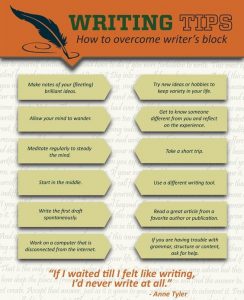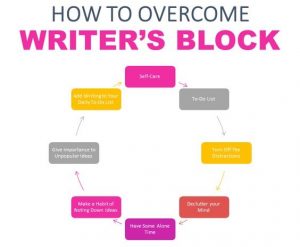The dissertation. For many nursing students, it represents the culmination of their academic journey, a testament to their dedication and intellectual prowess. But for others, it looms as a daunting, even terrifying, hurdle—a blank page whispering anxieties of inadequacy and the weight of unmet expectations. This is where writer's block, that frustratingly common phenomenon, often rears its head, paralyzing even the most enthusiastic and motivated nursing student.
Overcoming writer's block in nursing dissertation writing is not merely about finding the right words; it's about reclaiming your narrative, your voice, and your passion for the chosen research topic. This article explores the multifaceted nature of writer's block in this context and provides a comprehensive guide to tackling it head-on, offering strategies and resources to unlock your creative potential and successfully complete your nursing dissertation.
Understanding Writer's Block in Nursing Dissertation Writing
Writer's block in nursing dissertation writing isn't simply a lack of ideas. It's a complex interplay of factors that can range from fear of judgment and pressure to a lack of clarity regarding the research question and the research methodology.
Here's a breakdown of the common triggers:
- Perfectionism: This often leads to a paralyzing fear of writing "something wrong," making it difficult to even start.
- Lack of Clarity: Unsure of the research question or the intended audience, students may struggle to establish a clear direction for their writing.
- Overwhelm: The enormity of the task, the intricate research process, and the need for rigorous academic standards can lead to feeling overwhelmed and unable to make progress.
- Procrastination: The fear of failure and the pressure to produce a perfect nursing dissertation can lead to putting off writing, making the task seem even more daunting.
- Lack of Motivation: The dissertation may not be a topic of personal passion, leading to a lack of motivation and enthusiasm, making the writing process feel arduous.
- Burnout: The long hours of research, reading, and analysis, combined with other academic and personal commitments, can lead to mental and physical exhaustion, hindering the ability to write.

Breaking Free: Proven Strategies to Overcome Writer's Block
Recognizing the root cause of your writer's block is the first step towards overcoming it. Armed with this understanding, you can implement tailored strategies to reclaim your writing momentum.
- Rekindle the Spark: Rediscovering Your Passion
- Revisit Your Research Question: Remind yourself of the reasons you chose this topic and the impact it could have on nursing practice.
- Engage with the Literature: Re-engage with your literature review, highlighting key themes, controversies, and unanswered questions.
- Visualize the Impact: Imagine the positive impact your research could have on patients, colleagues, or the nursing profession.
- Connect to Your Values: Reflect on how your research aligns with your personal values and aspirations as a nurse.
- Tame the Perfectionist: Embracing Imperfection
- Start Small: Focus on writing a single paragraph, a page, or even a single sentence, rather than trying to complete the entire chapter at once.
- Embrace "Bad" Writing: Don't be afraid to write poorly, knowing you can edit and refine later. Focus on getting your ideas down on paper.
- Accept Feedback: Be open to feedback from mentors, peers, and supervisors, understanding it's a crucial part of the writing process.
- Focus on Progress, Not Perfection: Celebrate each milestone, acknowledging the effort and progress you've made, regardless of the final product.
- Demystifying the Process: Crafting a Clear Structure
- Break Down the Task: Divide the dissertation into smaller, manageable sections, focusing on one chapter at a time.
- Develop a Detailed Outline: Create a detailed outline for each chapter, outlining the key arguments, evidence, and analysis.
- Use Templates and Guides: Leverage dissertation templates and guides to provide a clear structure and framework for your writing.
- Seek Professional Guidance: Consult with professors, librarians, or writing centers for advice on structure, formatting, and style.
- Rekindling Creativity: Sparking Inspiration
- Change Your Environment: Move to a different location, try a coffee shop, or work in a library—a change of scenery can stimulate creativity.
- Engage with Other Writers: Join online forums, writing groups, or workshops to connect with fellow writers and share experiences.
- Engage in Creative Activities: Engage in activities that stimulate creativity like painting, drawing, playing music, or taking a walk in nature.
- Read Widely: Explore diverse genres of writing—literature, poetry, journalism—to spark new ideas and perspectives.

- Prioritizing Wellbeing: Combating Burnout and Procrastination
- Prioritize Self-Care: Ensure you are getting enough sleep, exercise, and healthy meals.
- Set Realistic Goals: Break down the dissertation into manageable tasks and set realistic deadlines for each.
- Manage Time Effectively: Implement time management techniques like the Pomodoro method to increase focus and productivity.
- Take Breaks: Schedule regular breaks to recharge and avoid burnout.
- Addressing Specific Challenges in Nursing Dissertation Writing
Writing the Literature Review:
- Synthesize, don't summarize: Focus on building a cohesive narrative that demonstrates your understanding of the existing research.
- Identify gaps: Highlight the areas where existing research is lacking and how your dissertation will contribute to filling those gaps.
- Critical analysis: Don't just describe the studies, critically analyze them, identifying strengths, weaknesses, and potential biases.
Writing the Methodology:
- Clear and concise: Explain the research design, participants, data collection methods, and data analysis techniques in a clear and concise manner.
- Ethical considerations: Address ethical issues related to informed consent, privacy, and confidentiality.
- Rigorous and defensible: Ensure your methodology is scientifically rigorous and that the data collection and analysis methods are appropriate for the research question.
Writing the Results and Discussion:
- Present findings effectively: Use tables, figures, and charts to present your findings in a clear and concise manner.
- Analyze and interpret: Go beyond simply stating the results; analyze them in depth and interpret their significance.
- Discuss implications: Discuss the implications of your findings for nursing practice, policy, and future research.
- Resources for Nursing Dissertation Writing
- University Writing Centers: These offer workshops, consultations, and resources to assist with writing, research, and formatting.
- Online Writing Communities: Participate in forums and communities dedicated to academic writing such as PhD Nurse Writer to connect with other students, share experiences, and seek advice.
- Dissertation Writing Books and Guides: There are several books and guides specifically designed to guide nursing students through the dissertation process.
- Peer Support Groups: Connect with fellow nursing students to discuss challenges, provide feedback, and offer encouragement.
- Maintaining Momentum: Staying Motivated Throughout the Process
- Celebrate Milestones: Acknowledge your accomplishments, even the small ones, to keep yourself motivated.
- Seek Feedback and Support: Don't be afraid to ask for help and support from mentors, peers, and supervisors.
- Remember Your Purpose: Remind yourself of the importance of your research and its potential impact on nursing practice.
Trending Nursing Dissertation Topics
- The Impact of Artificial Intelligence on Nursing Practice: This topic delves into the growing role of AI in healthcare, particularly its implications for nurses. You could explore areas like AI-assisted diagnosis, robotic surgery, and the ethical considerations surrounding AI in patient care. Nursing dissertation writing in this field would involve extensive literature review and potentially even data collection from real-world scenarios.
- The Role of Nurses in Promoting Health Equity: As healthcare disparities persist, nursing dissertation writing about this topic can contribute to finding solutions. You could examine the impact of social determinants of health on patient outcomes and propose interventions nurses can implement to promote equity in access to care.
- The Effectiveness of Telehealth in Nursing Care: The COVID-19 pandemic accelerated the adoption of telehealth, making it a crucial area for nursing dissertation writing. You could evaluate the effectiveness of various telehealth applications in specific patient populations or analyze the challenges and benefits of virtual care delivery from a nursing perspective.
- The Impact of Burnout and Compassion Fatigue on Nurse Retention: Nurse burnout and compassion fatigue are significant issues affecting the nursing profession. Nursing dissertation writing on this topic could explore the root causes, develop interventions to mitigate these issues, and propose solutions to improve nurse retention rates.
- The Integration of Mindfulness and Meditation in Nursing Practice: This growing trend in healthcare focuses on the benefits of mindfulness and meditation for both patients and nurses. Nursing dissertation writing could examine the effectiveness of these practices in reducing stress, improving patient outcomes, and fostering a more compassionate and empathetic nursing environment.
Remember, nursing dissertation writing requires thorough research, strong analytical skills, and a deep understanding of the chosen topic. Choosing a trending topic that interests you will make the process more enjoyable and impactful.

From Writer's Block to Dissertation Success
Overcoming writer's block in nursing dissertation writing is a journey that requires persistence, self-compassion, and a willingness to explore various strategies. Remember, it's not about perfection, but about progress. By understanding the triggers of writer's block, employing effective strategies, and utilizing available resources, you can reclaim your voice, unlock your creative potential, and successfully navigate the dissertation journey. The reward? Not just a completed nursing dissertation, but a newfound confidence in your research skills and a significant contribution to the nursing profession.
This dissertation is more than just a piece of academic work—it's a testament to your dedication, your critical thinking skills, and your commitment to advancing the nursing profession. It's a journey that will not only lead you to academic success but also empower you to become a more informed, compassionate, and effective nurse. So, embrace the challenge, overcome the obstacles, and embark on this transformative journey of nursing dissertation writing. Your voice, your passion, and your research deserve to be heard.
Get Professional Nursing Dissertation Writing Help
Academia Scholars is the reliable nursing dissertation writing partner that you should always engage when having difficulties in handling assignments. We provide professional and timely dissertation writing assistance, customized to your specific needs and goals. We can help you with choosing the right topic, writing dissertations and
research papers, proof reading, editing, and plagiarism check and removal.


